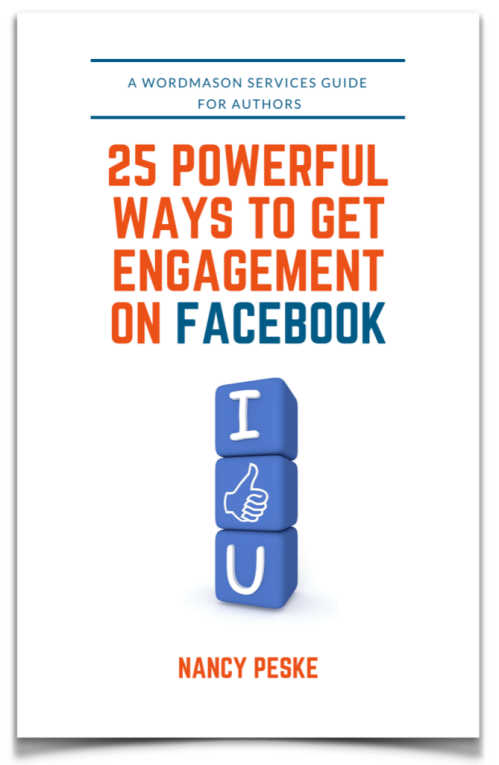How frustrating it is when you’re waiting for an agent or editor to respond to your submission! Rather than drive yourself crazy waiting, here’s what to do:
Ask when to check in. When your proposal or manuscript is requested after you query the agent or editor, ask when you can check in. It’s better to know they’ll need four weeks than to wonder, “Is it too early to ask what they think?”
Be patient. If you push too hard for an agent or editor to respond, you predispose that person to look for reasons to reject your submission. Agents and editors hate feeling pressured, and it’s always easier to say no than it is to say yes. Don’t prejudice them against your project. Instead, focus on getting someone else’s interest and making your book an even hotter property. Light a fire under the pokey agent. You can send to more than one agent (or have your agent submit it to multiple editors). The idea is to be able to send this message: “I have strong interest from another agent”—or editor—”so please let me know whether you are interested as well.” That’s more likely to drum up excitement than a nudge note that essentially says, “Can you please get back to me?”
Build your platform and try to generate good news about your work. Sure, you could twiddle your thumbs, agonize, vent to your friends and your dog, or call a psychic to get her take on your book proposal’s prospects, but here are some more practical and productive ways to spend your time right now. All will improve your chances of getting an agent and a book deal by building your platform and generating good news about your work that you can share with agents and editors.
–Offer to be a guest blogger on a popular blog.
–Write more blog pieces. Tease them on Facebook, Twitter, and LinkedIn.
–Pitch an article to a magazine or website.
–Write a free “service” article (how to do such-and-such, 7 tips for such-and-such) and submit it to a free articles site.
–Comment on major blogs and include your URL.
–Sign up for HARO: Help a Reporter Out and contact journalists and bloggers about their articles they are seeking experts to comment in. The paid version can be less cumbersome to us since you can set it to show you the most appropriate opportunities for you.
–Get active on social media and work to build your following.
–Work on your Web site. Make sure it encourages visitors to give you their e-mail address so you can someday send them notice of your book’s publication. Pop up sign ups should be attractive and promise a giveaway like a free ebook, a tipsheet, or an audio file (such as a guided visualization).
–Get booked on radio shows and podcasts. Ask the host to include a live link to your site in the description of the show and be sure to mention your website and any free giveaway you offer for subscribers.
–Start your own podcast. If it feels too daunting, make it a short one, 20 minutes perhaps, and give it a theme so people know what they’ll get when they come to your podcast.
–Set up some speaking engagements. Libraries and recreation departments are great places to start.
–Make some informational videos and post them online and on your website. Share them via social media and your newsletter.
–Be sure you have accounts on the biggest platforms: YouTube, Facebook (have a business page but also a closed group), Twitter, and Instagram. If you haven’t been active on one for a while, put something out there.
Remember, if you get a publicity break, or suddenly have a big uptick in followers, you can send a nice note to the agent or editor saying, “I just thought I’d let you know that I’ll be on MSNBC tomorrow/have an article in Psychology Today this week/got 2000 new Twitter followers/stripped for Playboy magazine to build my “healthy body” brand.” Think of all the many ways you can draw attention to your brand at this critical point. I’m not kidding about the centerfold: When I was an in-house editor, one of my authors, who wrote guides to improving intimacy, appeared in a major men’s magazine half-clothed, the month of our annual sales conference. That certainly woke up the sales force! My authors with similar books in the pipeline were intrigued by this bold move, but decided on other means for self-promotion!
Envision the sale. Imagine that you have gotten the call from the agent or editor saying, “This is the greatest thing EVER!” Visualize every moment of that call…yourself on a major national television show talking about it as the host stares at you, enraptured…your book’s title on the top of the New York Times bestseller list…you speaking to an audience of aspiring authors, telling your story about how you, too, thought at one point that there was no hope but then the call came and now look at you. Don’t feel embarrassed by this exercise. Many successful authors have envisioned their success and infused their fantasy with the emotions so that it felt real, only to have that success play out in reality.
Need help with writing and editing your book? A consultation on building your author platform? Contact me at info@nancypeske.com and check out my new blog at http://www.NancyPeske.com/blog






